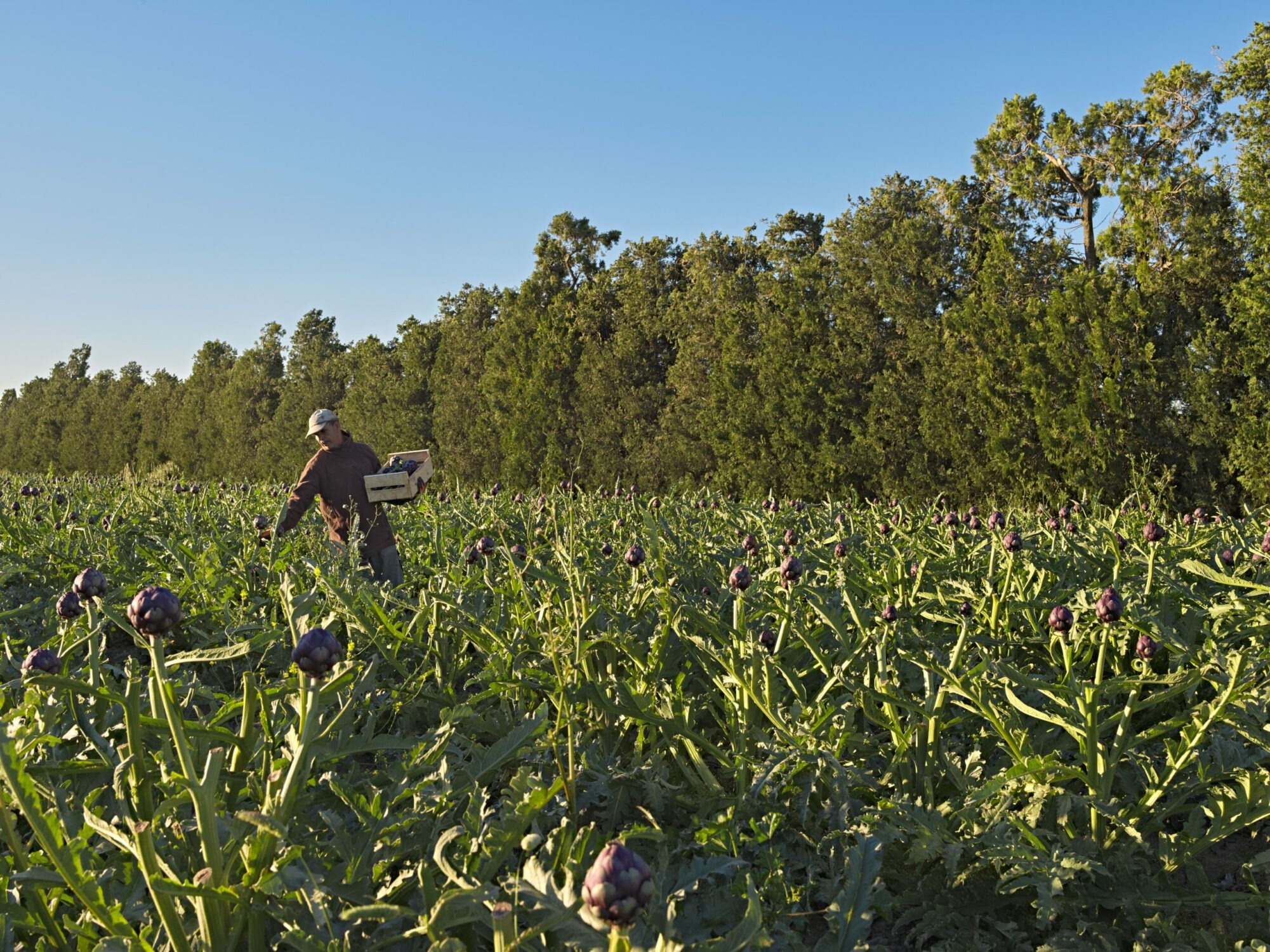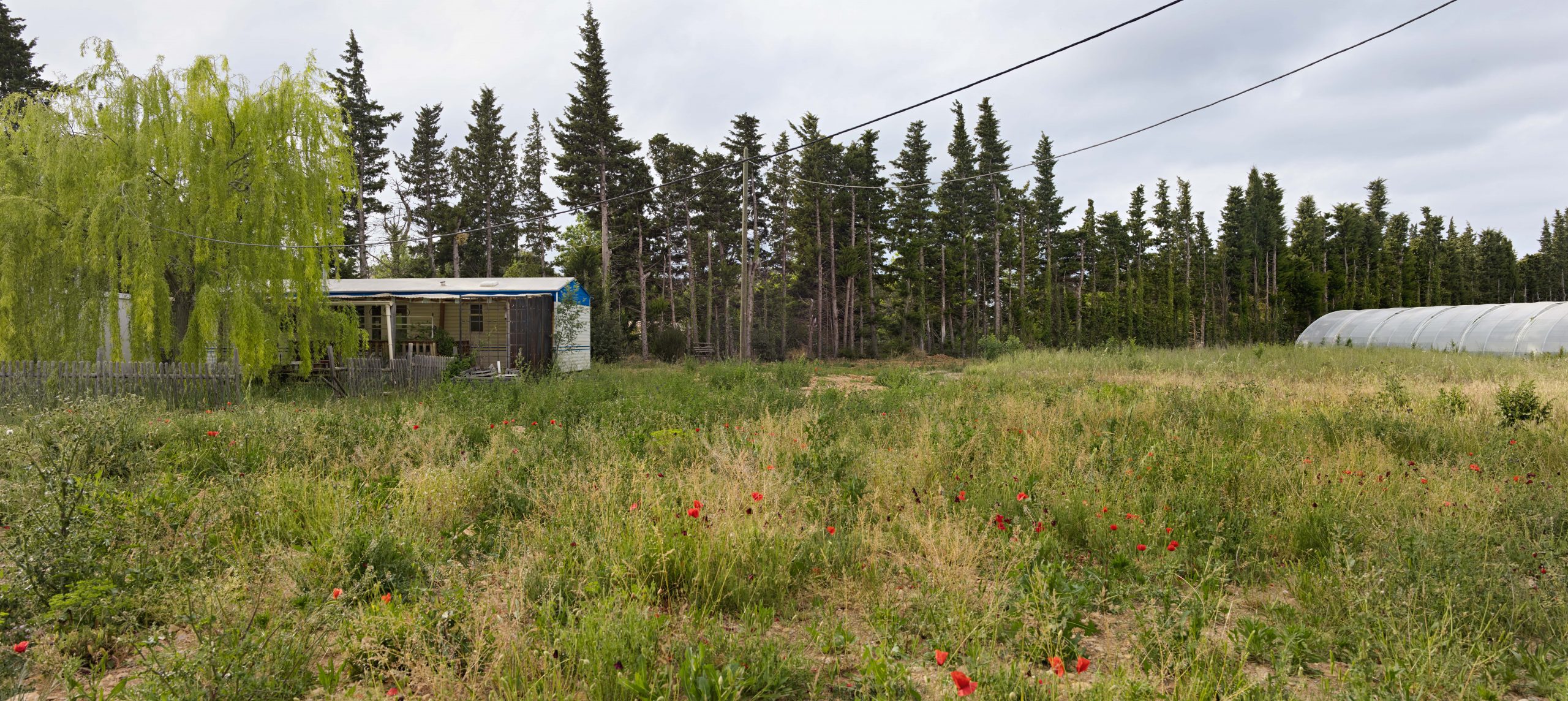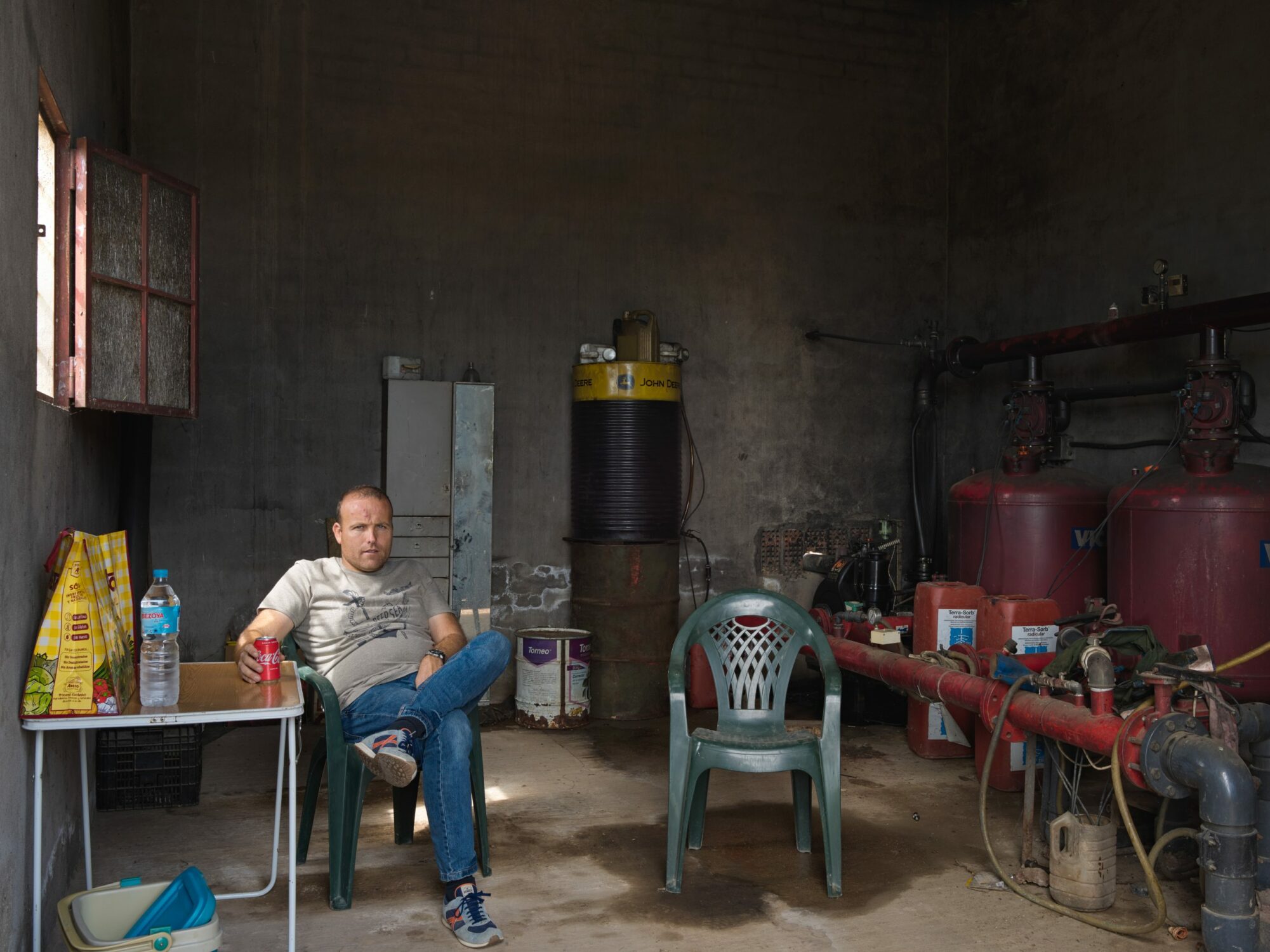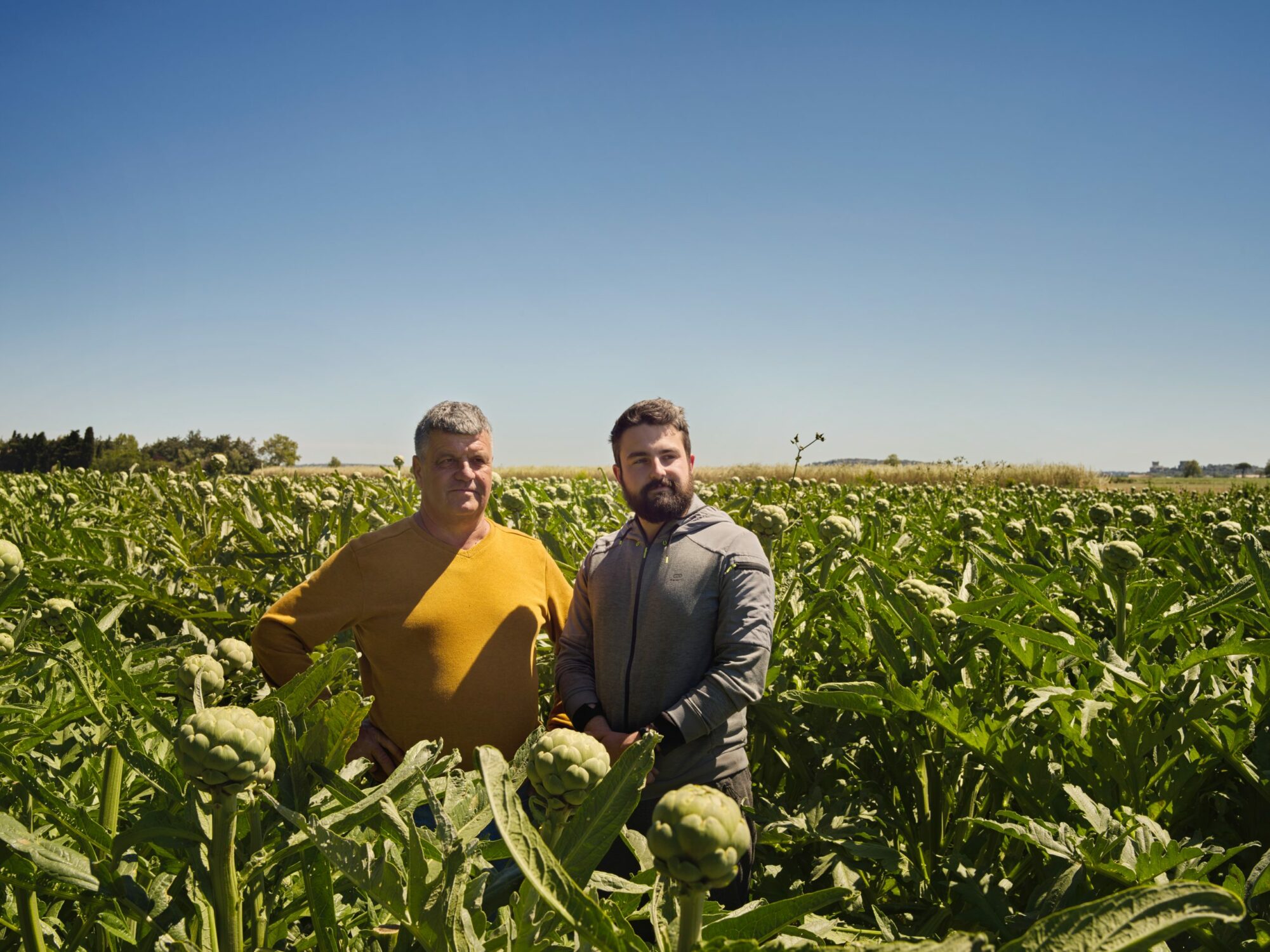
Le petit Violet
A Frenchman in Tarascon who started out as a conventional grower later switched to organic growing. He now works with his son producing tomatoes, melons, red peppers, courgettes, aubergines and artichokes.
They are inventive and dedicated growers who collaborate a great deal with other growers and research institutes. They have also re-established older crops, such as the little purple artichoke called “Le petit Violet”, which is delivered to countless top restaurants.
His son Guillaume was willing to take over the business only on condition they made the transition from conventional to organic.
It turned out to be a profound step in their lives.
“The switch from conventional to organic agriculture was fundamental because our living conditions have improved.”
Serge and Guillaume Fluet
Tarascon, France
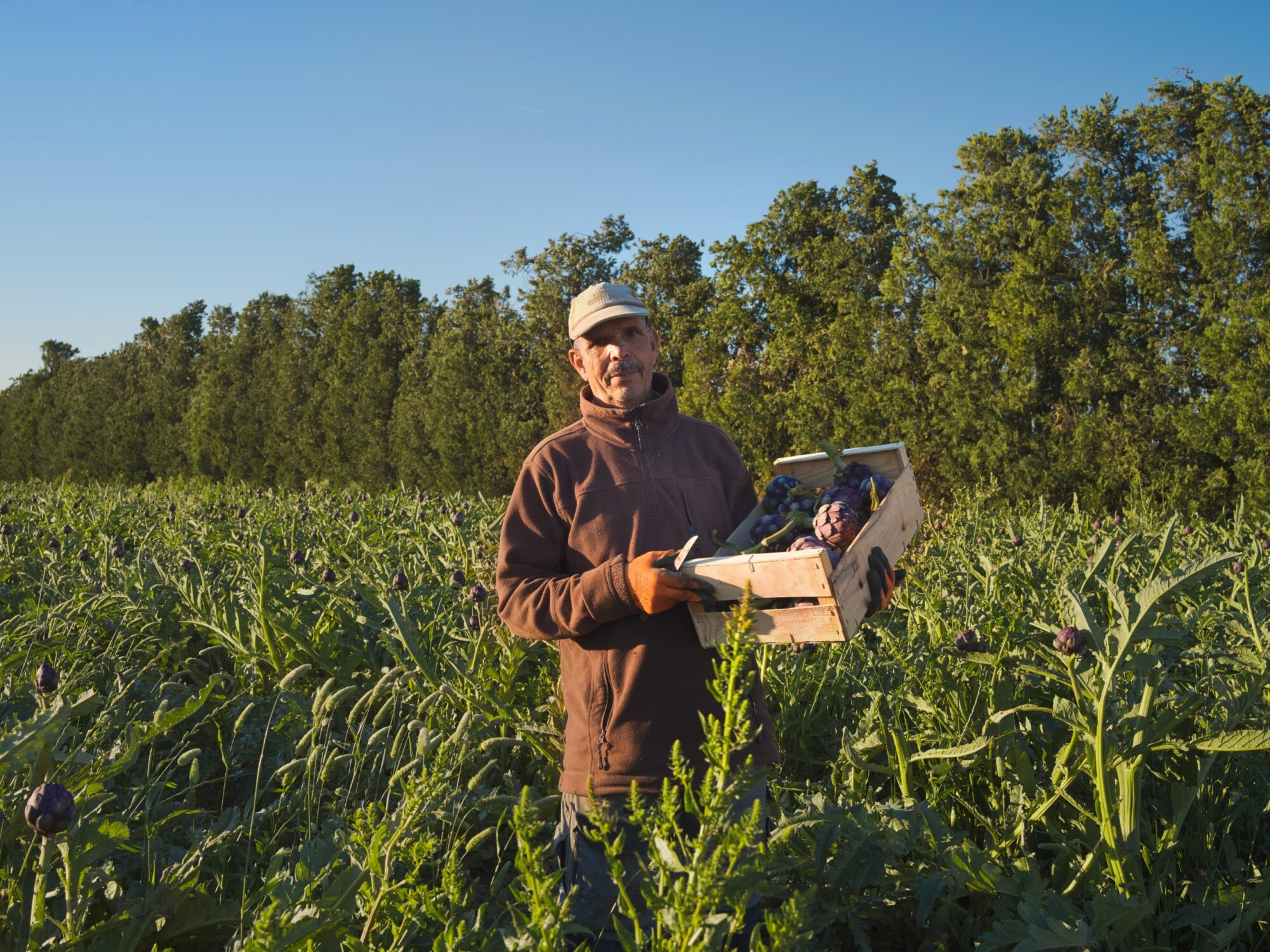
Le petit Violet is a very old variety, not a hybrid.
Because its seeds have not been officially registered, the artichokes
cannot be sold in supermarkets.
Instead they are sold direct to high-grade restaurants and the seeds distributed free of charge to other local farmers.
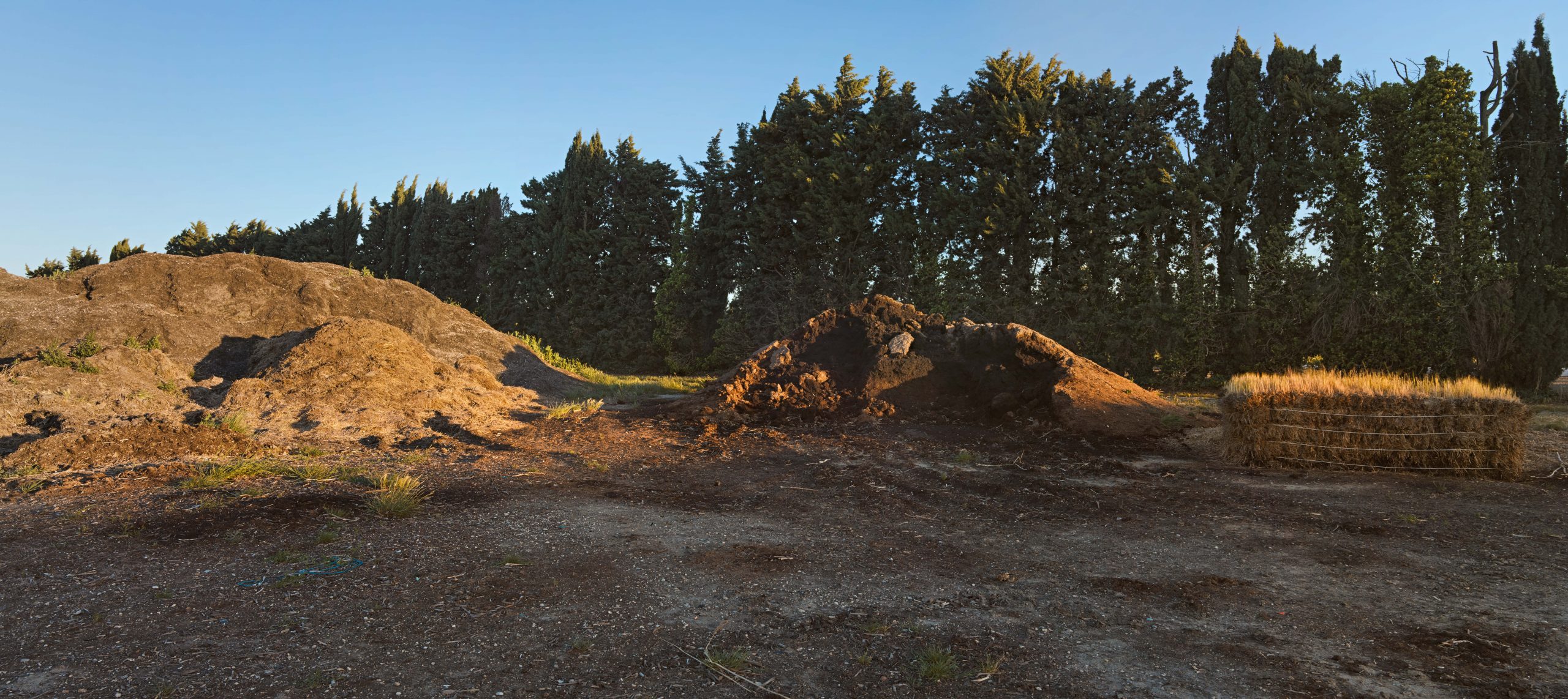

“We replaced fertilizers by a massive addition of compost; it feeds the soil.”
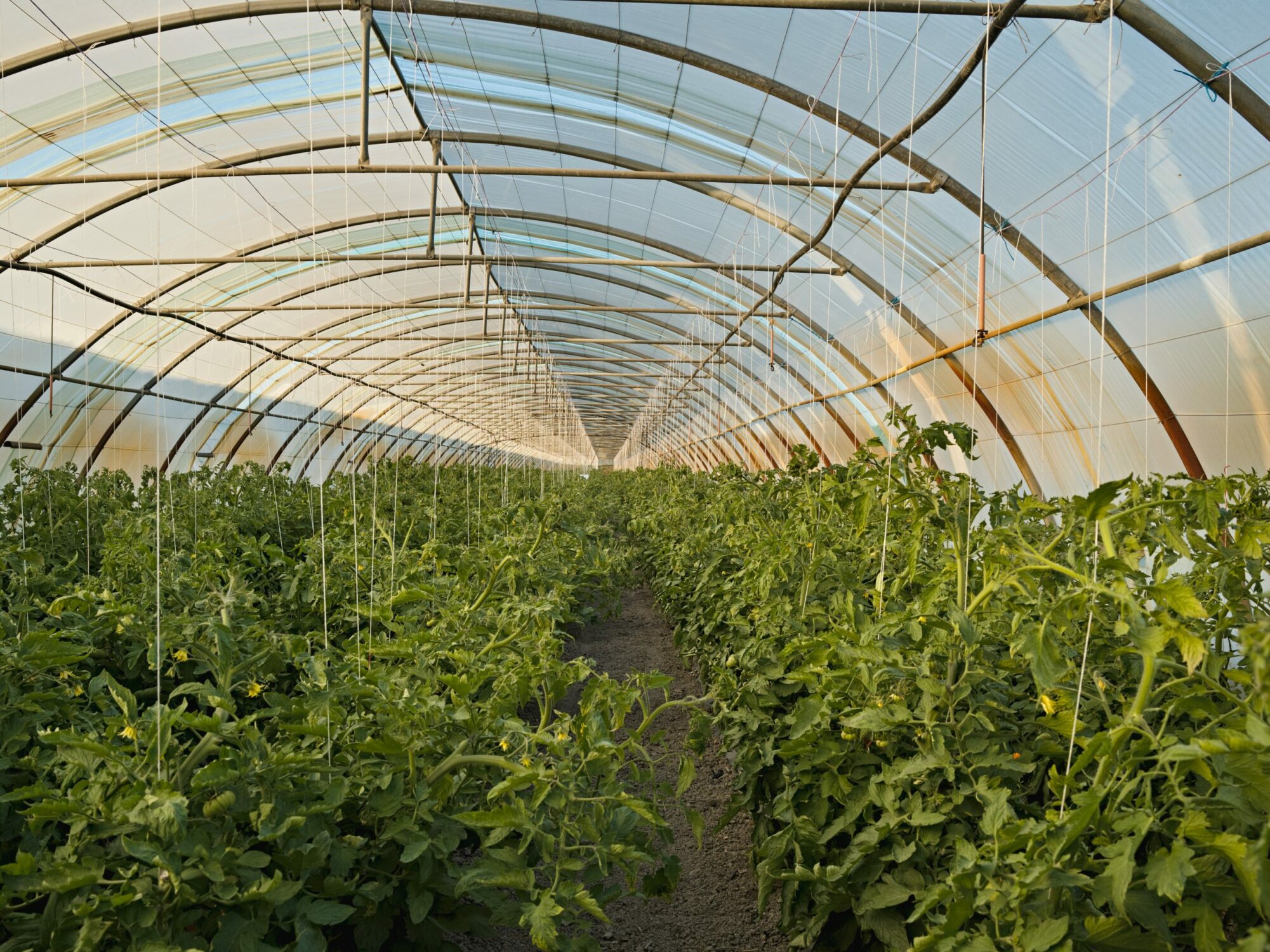
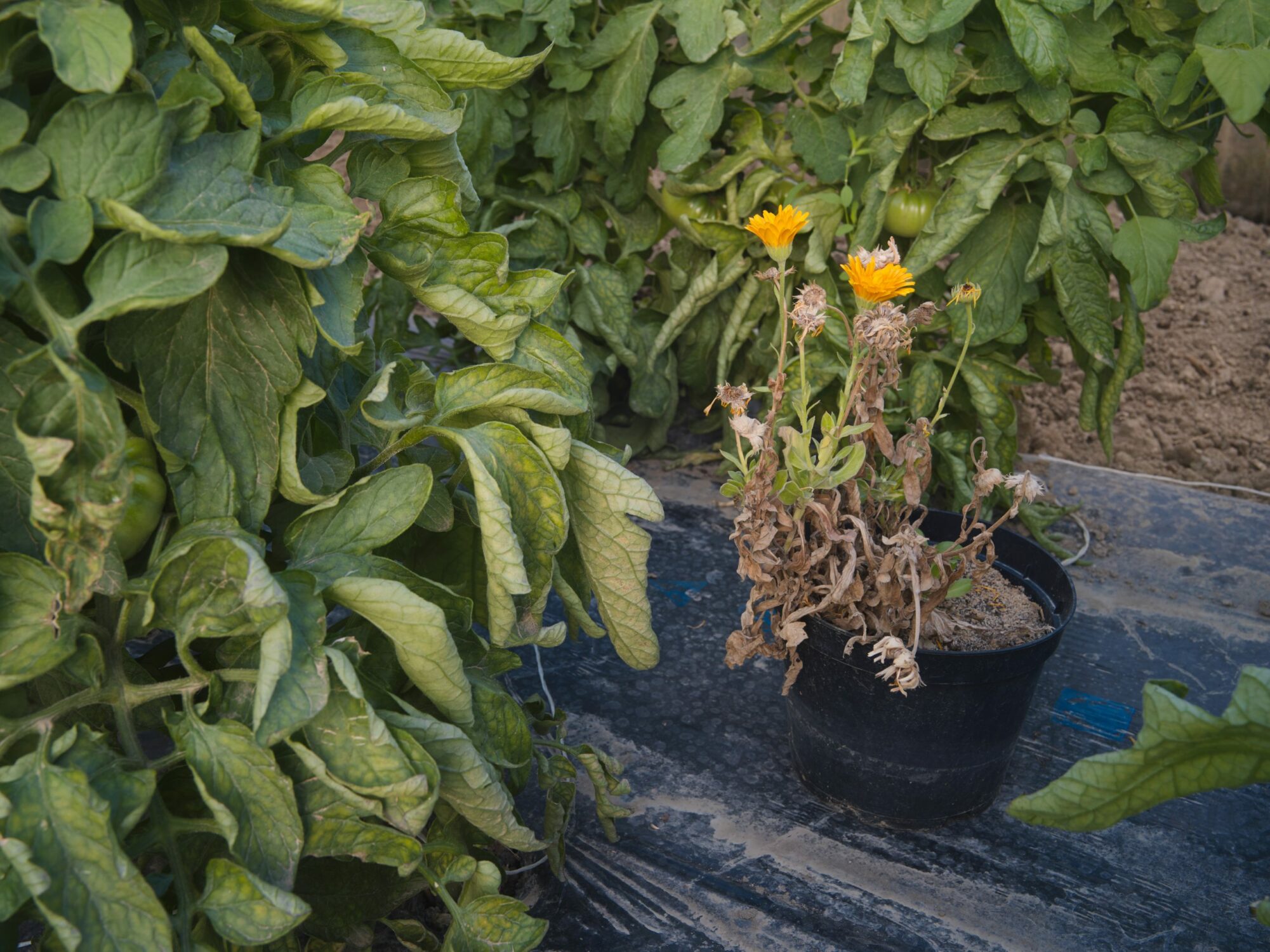
Combatting pests with Marigolds
As well as growing vegetables in the open field, Serge and Guillaume have a number of plastic tunnels for the cultivation of tomatoes, cucumbers and other crops.
We are given a tour of the tunnels and it strikes us that in the paths between the tomatoes are plants that seem more dead than alive. When we ask about them, we are told they are an effective means of combatting infestations in tomato plants.
They are marigolds or calendula, a plant we know only as a treatment for our children’s grazed knees.
Serge explains that he grows marigolds to catch insects. Both “the good guys and the bad guys” are hugely attracted to marigolds, and when they are full of insects, he puts large numbers of them next to his tomatoes. When the good guys have had their fill of the bad guys, he stops watering them. The marigolds die and the beneficial insects have no choice but to jump onto the tomato plants, where they continue eating voraciously, feasting on pests. It is a method as simple as it is effective.
These and other inventive solutions are thought up by father and son together, then tested and perfected and shared with other growers.
“When the good guys have had their fill of the bad guys, we stop watering them.”
Passionate growers
Two more stories about passionate growers with perseverance
